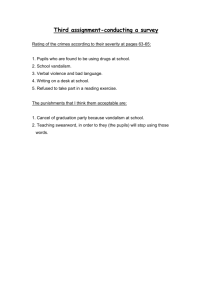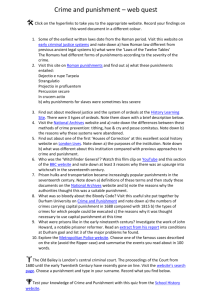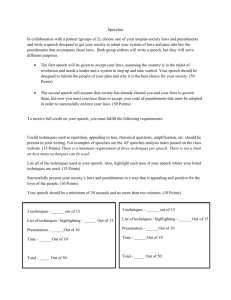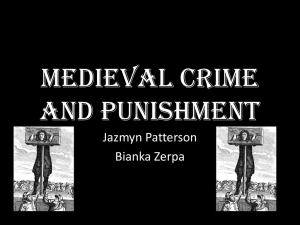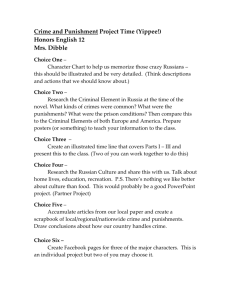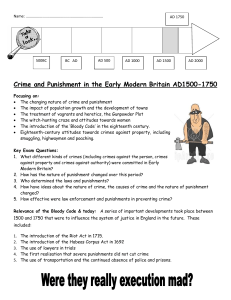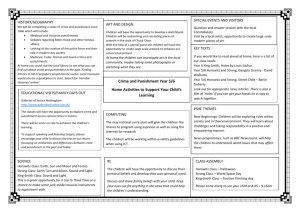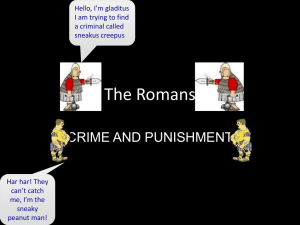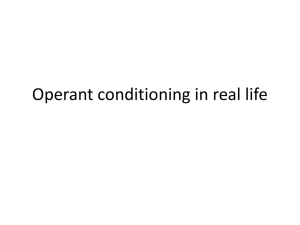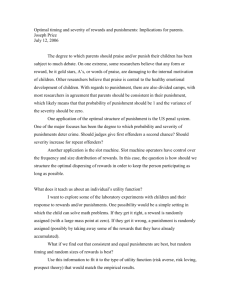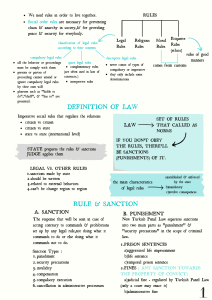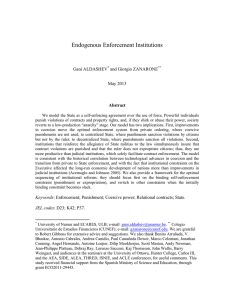The Scarlet Letter
advertisement
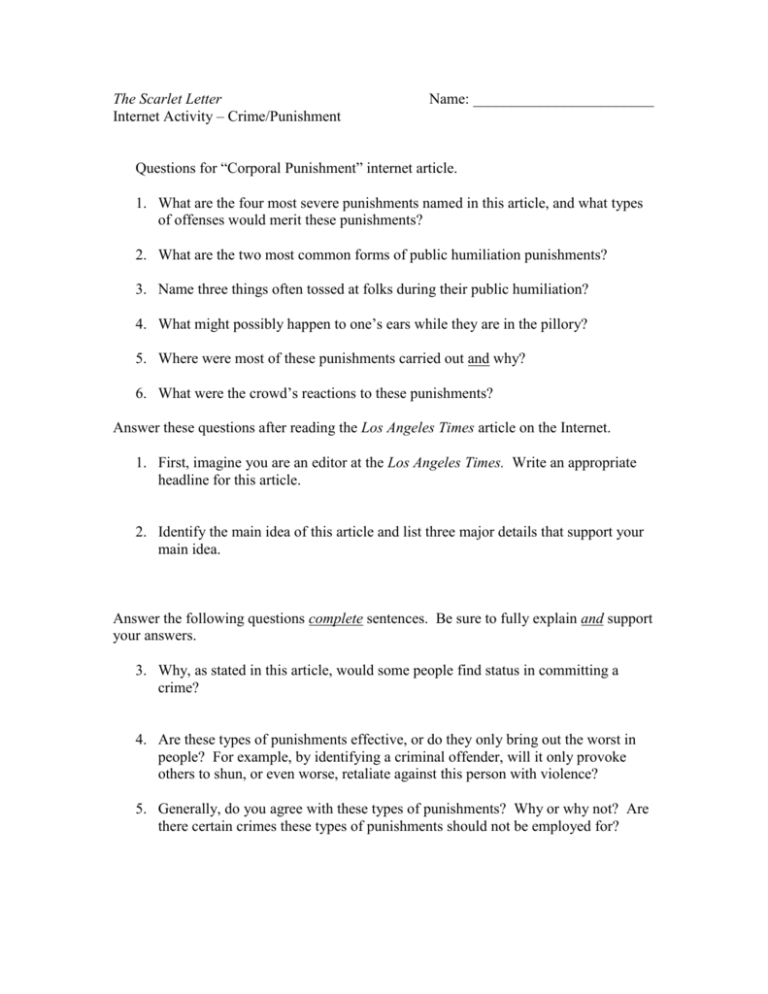
The Scarlet Letter Internet Activity – Crime/Punishment Name: ________________________ Questions for “Corporal Punishment” internet article. 1. What are the four most severe punishments named in this article, and what types of offenses would merit these punishments? 2. What are the two most common forms of public humiliation punishments? 3. Name three things often tossed at folks during their public humiliation? 4. What might possibly happen to one’s ears while they are in the pillory? 5. Where were most of these punishments carried out and why? 6. What were the crowd’s reactions to these punishments? Answer these questions after reading the Los Angeles Times article on the Internet. 1. First, imagine you are an editor at the Los Angeles Times. Write an appropriate headline for this article. 2. Identify the main idea of this article and list three major details that support your main idea. Answer the following questions complete sentences. Be sure to fully explain and support your answers. 3. Why, as stated in this article, would some people find status in committing a crime? 4. Are these types of punishments effective, or do they only bring out the worst in people? For example, by identifying a criminal offender, will it only provoke others to shun, or even worse, retaliate against this person with violence? 5. Generally, do you agree with these types of punishments? Why or why not? Are there certain crimes these types of punishments should not be employed for? Consider the following school policies. What types of shaming punishments would “make sense” for these violations of school rules and policies? Violation Punishment Excessive tardies Not turning in homework Fighting Truancy Insubordination Answer the following questions after reading “Chapter 7: The Scarlet Letter” on line. 1. In September of 1633 Robert Cole was punished for being a drunk. What was his punishment? 2. In 1638 and 1656 two people were sentenced to wear letters on their garments for criminal acts. What letters were used and what criminal activity did those letters stand for? 3. If a person were to “interrupt or oppose a preacher in season of worship,” what punishment would that person receive? 4. Joan Andrews of York, Maine was given a humiliation punishment. What was her crime and what was her punishment?
